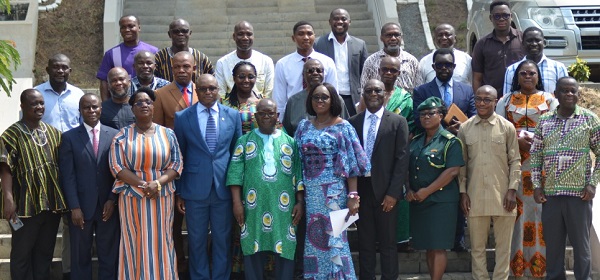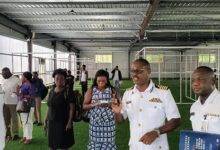
Management of the University of Environment and Sustainable Development in Somanya in the Eastern Region, has called on the government to invest in water management systems and develop an aggressive strategy to see to the restoration of all water bodies in the country.
“The extent to which activities of illegal mining are threatening the existence of all water bodies should be a cause of concern for all especially the government,” it noted.
The Vice Chancellor of the University, Professor Eric Nyarko-Sampson, urged the government to review the fight against ‘galamsey’ to save water bodies from extinction.
Speaking at the 3rd commencement lecture in Somanya, he indicated that it was a fact that illegal mining and other activities pose a significant threat to water bodies and environment and behooved on the citizenry to come together to address the menace collectively to protect the water bodies from extinction.
“One way of enduring this is through active community involvement in intervention geared towards awareness creation on the dangerous activities and the importance of water bodies and as a way of securing our water bodies, we need to invest in water management systems and reduce pollution to enhance water quality.
“This will enable us to enjoy the benefits of quality water and related marine resources and securing the future of our water resources goes beyond the above which involves making deliberate efforts to protect water bodies and aquatic life and our water bodies must be restored to address the pressing environmental challenges and the government must restrategise the fight against galamsey,” Prof. Nyarko-Sampson postulated.
Speaking on the theme: ‘Securing Our Environment, Our Water, Our Future,” a Senior Research Scientist and Head of the Groundwater Division of the CSIR-Water Research Institute, Reverend Dr Anthony Appiah, stressed on the need for government to improve water infrastructure in rural areas, especially in the Northern, Oti, North East and Savannah regions, where only one-fifth of the population had access to potable water.







